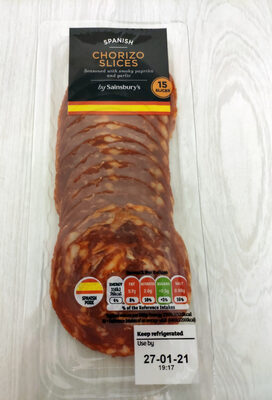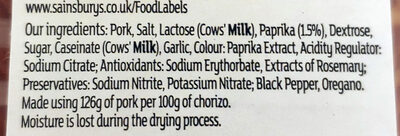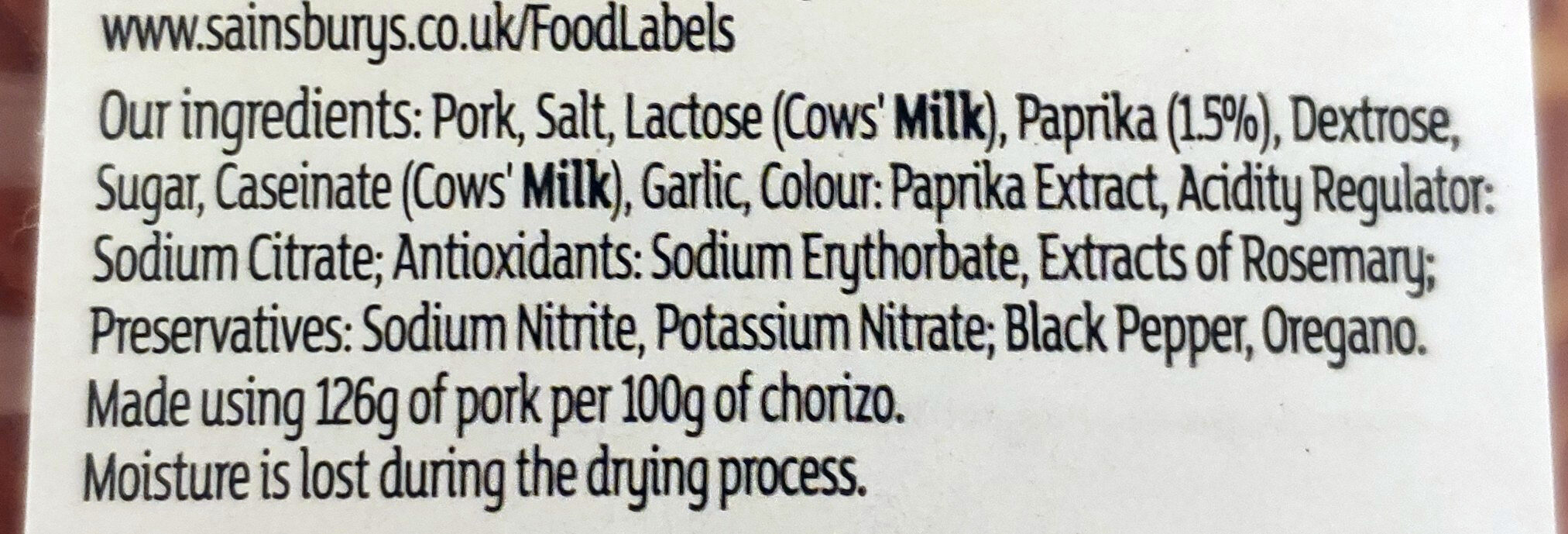Chorizo Slices - Sainsbury's - 70g
Ambiguous barcode: This product has a Restricted Circulation Number barcode for products within a company. This means that different producers and stores can use the same barcode for different products.
×
Barcode: 01737769
Common name: Spanish dry cured pork sausage slices seasoned with paprika
Quantity: 70g
Packaging: Mixed plastic-film, Pet-tray
Brands: Sainsbury's
Categories: Meats and their products, Meats, Prepared meats, Cured sausages, Chorizo
Labels, certifications, awards: Contains milk
Origin of ingredients: Spain
Traceability code: ES 10.14985/NA CE
Link to the product page on the official site of the producer: https://www.sainsburys.co.uk/gol-ui/Prod...
Stores: Sainsbury's
Countries where sold: United Kingdom
Matching with your preferences
Report a problem
Data sources
Product added on by kyzh
Last edit of product page on by macrofactor.
Product page also edited by alia, kiliweb, openfoodfacts-contributors, packbot, roboto-app, swipe-studio, teolemon, yuka.WjZJRE5xOEFwZDBFa2ZkaDJSUEw0bzEyNjVPUFoyT3dBTklQSWc9PQ.











